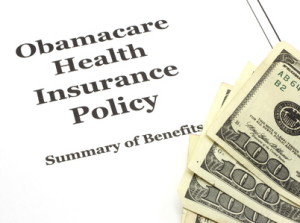 0
0 0
0 0
0 0
0 Now is the time for consumers to comparison-shop to see if they can find a healthcare plan that saves them money. Using one of the new online exchanges may, in some cases, give you more options than provided by the healthcare your job provides – but knowing where to look is daunting and the options are numerous. Where should you start? First of all, let’s look at some of the terminology and what this means:
Now is the time for consumers to comparison-shop to see if they can find a healthcare plan that saves them money. Using one of the new online exchanges may, in some cases, give you more options than provided by the healthcare your job provides – but knowing where to look is daunting and the options are numerous. Where should you start? First of all, let’s look at some of the terminology and what this means:
What is a healthcare exchange?
An insurance exchange under Obamacare is an online health insurance marketplace. These have been created according to the Affordable Care Act.
What is the benefit of a state exchange?
Healthcare reform is complex and the options available to you depend very much on your state of residence. Each state offers subsidized plans via the exchanges, which makes them appealing prospects as they can significantly cut down on the cost of individuals’ and families’ healthcare premiums.
Select an exchange according to your state
Although the exchanges will be open to all, you should be aware that:
- 34 states will be using the healthcare exchange marketplaces that have been set up by the federal government.
- 16 states and the District of Columbia will be operating their own healthcare exchanges.
What are the different exchanges for each state?
| Name of state |
State or federal exchange? |
Exchange hub website |
| Alabama |
Federal |
HealthCare.gov |
| Alaska |
Federal |
HealthCare.gov |
| Arizona |
Federal |
HealthCare.gov |
| Arkansas |
Federal |
HealthCare.gov |
| California |
State |
CoveredCA.com |
| Colorado |
State |
ConnectForHealthCO.com |
| Connecticut |
State |
AccessHealthCT.com |
| Delaware |
Federal |
HealthCare.gov |
| District of Columbia |
State |
Hbx.dc.gov |
| Florida |
Federal |
HealthCare.gov |
| Georgia |
Federal |
HealthCare.gov |
| Hawaii |
State |
HawaiiHealthConnector.com |
| Idaho |
State |
YourHealthIdado.org |
| Illinois |
Federal |
HealthCare.gov |
| Indiana |
Federal |
HealthCare.gov |
| Iowa |
Federal |
HealthCare.gov |
| Kansas |
Federal |
HealthCare.gov |
| Kentucky |
State |
Kynect.com |
| Louisiana |
Federal |
HealthCare.gov |
| Maine |
Federal |
HealthCare.gov |
| Maryland |
State |
MarylandHealthConnection.gov |
| Massachusetts |
State |
MAHealthConnector.org |
| Michigan |
Federal |
HealthCare.gov |
| Minnesota |
State |
MNsure.com |
| Mississippi |
Federal |
HealthCare.gov |
| Missouri |
Federal |
HealthCare.gov |
| Montana |
Federal |
HealthCare.gov |
| Nebraska |
Federal |
HealthCare.gov |
| Nevada |
State |
NevadaHealthLink.com |
| New Hampshire |
Federal |
HealthCare.gov |
| New Jersey |
Federal |
HealthCare.gov |
| New Mexico |
State |
NMHIX.com |
| New York |
State |
HealthBenefitExchange.ny.gov |
| North Carolina |
Federal |
HealthCare.gov |
| North Dakota |
Federal |
HealthCare.gov |
| Ohio |
Federal |
HealthCare.gov |
| Oklahoma |
Federal |
HealthCare.gov |
| Oregon |
State |
CoverOregon.com |
| Pennsylvania |
Federal |
HealthCare.gov |
| Rhode Island |
State |
HealthSourceRI.com |
| South Carolina |
Federal |
HealthCare.gov |
| South Dakota |
Federal |
HealthCare.gov |
| Tennessee |
Federal |
HealthCare.gov |
| Texas |
Federal |
HealthCare.gov |
| Utah |
Federal |
HealthCare.gov |
| Vermont |
State |
HealthConnect.Vermont.gov |
| Virginia |
Federal |
HealthCare.gov |
| West Virginia |
Federal |
HealthCare.gov |
| Washington |
State |
WAHealthPlanFinder.org |
| Wisconsin |
Federal |
HealthCare.gov |
| Wyoming |
Federal |
HealthCare.gov |
What about employer’s healthcare coverage?
Even if your employer offers insurance, you can still compare plans available via your state’s exchange.
Be aware that if you decide to go with coverage on one of the state exchanges instead of your employer’s plan, you may not receive some of the benefits that uninsured individuals have. In general, it is better to stick with your employer’s plan but there are a couple of exceptions to this. Namely, if the law declares that you are eligible to receive some of the state subsidies for health insurance. If you do not meet the criteria and you switch to a state plan nonetheless, you may find yourself missing out on coverage and paying out of pocket for care.
Why may you miss out on coverage if you switch from employer’s coverage to state coverage?
Unless your coverage is considered to be “unaffordable” or “inadequate” according to the Affordable Care Act, you will not be eligible to receive a government subsidy to cover the cost of your healthcare insurance if you decide to switch from your employer’s plan.
“Unaffordable” means that:
- Your share of premium payments costs more than 9.5% of your household income.
“Inadequate” means that:
- You employer’s coverage only extends to less than 60% of the cost of covered benefits.
If neither of these apply, you will not be eligible for a government subsidy to help pay for the cost of your healthcare insurance coverage. Most employees’ work-based healthcare plans do not fall into the “unaffordable” category – according to research from the ADP Research Institute, only 8.6% of employees that pay premium contributions actually pass the criteria for the Affordable Care Act’s criteria of “unaffordable.”
What are some of the subsidies available through state healthcare exchanges?
Tax credits are the method of subsidies available. These are available to people who earn up to 400% of the federal poverty level, which equates to:
- $46,000 for an individual
- $94,000 for a family of 4 people
Outside of those example parameters, the precise amount of subsidy available depends on the size of your family and the total household income.
How are you finding the transition to Obamacare? Are you sticking with your employer’s insurance or do you qualify for one of the state subsidies? How much money will this save you and your family? Tell us what you think by leaving a comment for us, below!

